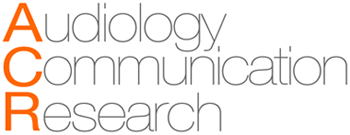ABSTRACT
From the perspective of working on the improving the speech of deaf children, the speech therapy action, when seeking new tools beffitting the current technological scenario, can use technological applications to help its interventions with deaf children, because digital games, besides stimulating visual perception, favors interactive moments as phases of the learning process. The present study aimed to analyze therapeutic strategies mediated by the use of software in the rehabilitation of vocal and articulatory speech skills of deaf children using cochlear implants. It is a case study of three deaf children was carried out through the survey of medical records; evaluation of the voice and articulation and acoustic analysis of the vocal productions of the vowels [a], [i], [u], and of the occlusive sounds [p], [b]; and application of the digital game VoxTraining to improve vocal and speech aspects performed in five therapeutic sessions. It was observed that all children were diagnosed with hearing los and early rehabilitation. The children are also in the process of acquiring the Brazilian Sign Language as their mother tongue and presents vocal and articulatory speech alterations. The results suggest that the participants were interested in the software due to the request for repetition of the games by the children, and this fact contributed to a better understanding of the vocal and articulatory exercise to be performed due to the contribution of visual feedback. It was concluded that bilingual work with deaf children using digital games facilitates therapy and improves voice quality and speech.
Keywords:
Cochlear implantation; Deafness; Language Therapy; Voice; Software

 Thumbnail
Thumbnail
 Subtitle: Pre-test (black line); Post-test (red line)
Subtitle: Pre-test (black line); Post-test (red line)